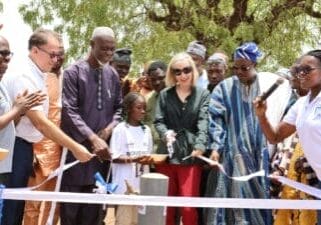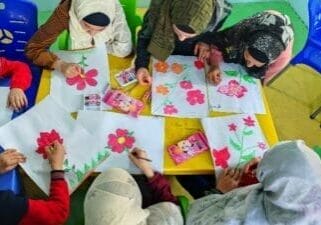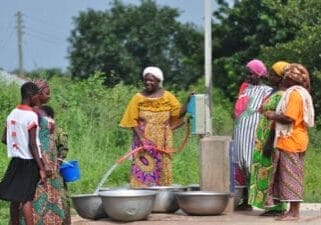News > Blog
Building the Resilience of Kenya’s Cooperative Sector through Capacity Building of Policymakers and Implementers
Published 05/23/2023 by Global Communities

By Olga Oyier & Maureen Gitau, USAID/CLEAR Program
Kenya’s devolved system of governance has provided the country with an opportunity to implement grassroots-led development programs but also revealed technical gaps at the county government level, particularly in the area of public policy formulation and implementation. More specifically, the cooperatives policy and legislative reform process to align with the provisions of the Constitution of Kenya 2010 has been slower than other devolved sectors, despite efforts by development partners to support this process. Although cooperatives have found a way to navigate the regulatory barriers and continue their operations, the need for a more harmonized approach to policy reforms is crucial to minimizing disruptions for the businesses.
Following consultations with relevant government institutions, Global Communities’ Cooperative Development Program – Cooperative Leadership Engagement Advocacy and Research (CLEAR), funded by USAID — developed a baseline survey to determine technical gaps that existed and to establish demand for the program’s intervention within its mandate. The survey sought to better understand the status and levels of policy formulation skills as well as the county officer role in creating a business environment where cooperatives can thrive.
A total of 33 counties participated in the survey and findings revealed a significant gap in stakeholder engagement, policy development and drafting skills. Survey results also led to the development of the Executive Public Policy Making Process (PPMP) training, in collaboration with Strathmore University Business School, to enhance the capacity of public policymakers and implementers in Kenya, especially those working in the cooperative sector.
County cooperative officers have shown tremendous enthusiasm in their participation in the virtual PPMP training. Despite internet connectivity challenges and competing priorities, 85% of the participants, on average, have reported increased understanding of the requirements of the devolved cooperative function as outlined in the Fourth Schedule of the Constitution of Kenya, 2010.
Recognizing that the public policy process is not linear, the overall objective of the training is to build the capacity of county government officials and provide them with requisite skills to develop inclusive and enabling cooperative policies and legislation. Doing so also equips them to serve as trainers of trainers who can educate cooperative members on their right to actively participate in the policy process.
Cooperative members’ participation in the policymaking process supports the cooperative sector as a vehicle of resilience, especially through the COVID-19 pandemic, because members can contribute to the formulation of inclusive and sustainable policies that affect their businesses. This also presents an opportunity for cooperatives to be enlightened on regulations that sometimes unintentionally limit the development and growth of their businesses and, in turn, document their concerns to the local authority in an organized fashion. This is anchored on a robust public-private dialogue structure at national and county government levels.

Olga Oyier is the Kenya Country Team Lead and Policy & Legislative Affairs Specialist for Global Communities’ USAID-funded Cooperative Leadership, Engagement, Advocacy & Research (CLEAR) Program. She has been supporting the Government of Kenya towards the creation of an enabling policy and legislative environment for cooperatives and supporting the growth of the service/worker-owned cooperative model in Kenya. She successfully led the design, testing and implementation of the Executive Public Policy Making Process Training in collaboration with Strathmore Business School. Through her engagements, she supported the development of the Draft Cooperative Bill of 2021 and the Model County Cooperative Bill as championed by the State Department for Cooperatives and the Council of Governors respectively. Her experience in business regulatory reform spans over 10 years.

Maureen Gitau is a Policy & Legislative Affairs Officer for Global Communities’ Cooperative Leadership, Engagement, Advocacy & Research (CLEAR) Program. Among the CLEAR Program’s objectives are to support the devolution of cooperative government functions to the county level by developing county government-related policies and legislation. To encourage the devolution process, CLEAR facilitates policy dialogue between national and regional cooperative stakeholders in public, private, academic and development institutions.
Ms. Gitau received her Postgraduate Diploma in Law from the Kenya School of Law and her Bachelor of Law degree from Kenyatta University. She also holds Executive Certificates in Public Policy from Strathmore Business School and in Public Policy Making Process from the Kenya Institute for Public Policy and Research.






